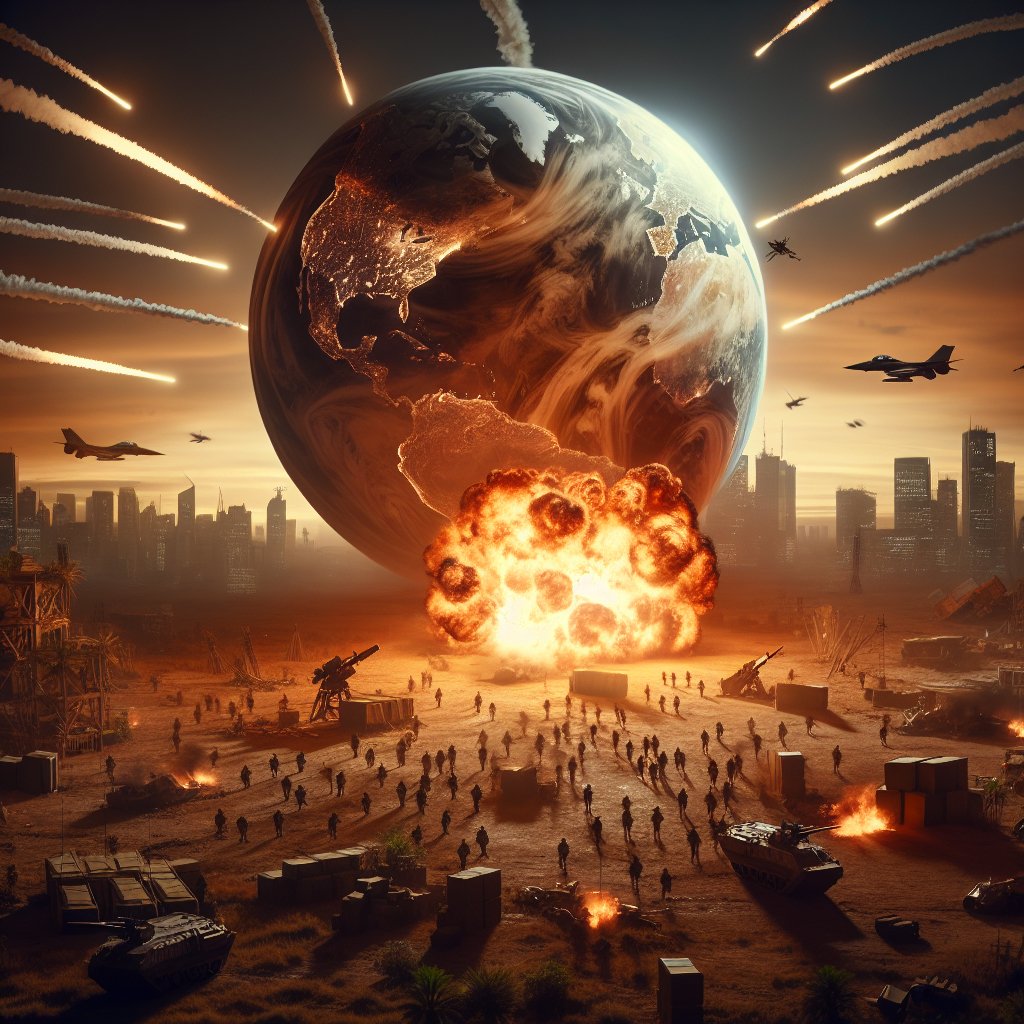Content created by AI
Tensions Escalate as Russia Retaliates Against Ukraine for Belgorod Assault
The geopolitical landscape in Eastern Europe remains volatile, as Russia commenced a rigorous series of drone and missile attacks on various Ukrainian cities, including the capital city Kyiv and the northeastern city Kharkiv. This development comes as a retaliatory response to what Russia deems a "terrorist attack" on the Russian city of Belgorod, which took place on Saturday, resulting in significant casualties.
On Sunday, the Russian defence ministry issued a statement revealing its targeted assault on "decision-making centres and military installations" across Kharkiv. In contradiction, Ukrainian reports identified the damage to residential zones, highlighting that buildings, a hotel, and several cafes had been struck.
Kharkiv, already laying claim as Ukraine's second-largest city, bore the brunt of overnight aggression. No less than six missiles afflicted the city, with the National Police of Ukraine documenting upwards of 22 individuals injured and substantial damage to civilian structures, such as apartment buildings, houses, and a kindergarten. Adding to the distress, two teenage boys and an adviser for a German journalism crew were among the injured.
In an unyielding defensive endeavour, the Ukrainian Air Force disclosed the interception and neutralization of 21 out of 49 incoming attack drones. These drones purportedly targeted Ukraine's first line of defence and civilian, military, and infrastructure points in multiple regions, amplifying the complexity of the battleground.
Mayor Ihor Terekhov of Kharkiv conveyed his city's resolve in the face of adversity, asserting resilience and indomitable spirit amidst the hostilities ushered in by the New Year festivities.
The incident in Belgorod, which Russia characterizes as a provocatively aggressive act involving cluster munitions, has sparked an increase in tension, with the local governor urging citizens to seek refuge from possible missile threats. Vasily Nebenzya, Russia's envoy to the UN, advocated this standpoint at an emergency meeting of the Security Council, demanded by Russia, bringing attention to Ukrainian targeting of civilian infrastructure.
Conversely, the US and its NATO allies maintain a consistently strong supportive stance toward Ukraine, despite internal deliberations concerning the continuation of such aid, particularly within the American political spectrum. President Joe Biden's recent articulation of Russian intentions further underscores the necessity of staunch resistance to Russian advances, as per the perspective of the West.
Amidst the conflict's evolving narrative, the flow of aid remains under scrutiny. The United States, standing as Ukraine's paramount donor, contends with internal political debates that could potentially stymie forthcoming financial support. Similarly, the European Union grapples with internal friction, most notably Hungary's resistance to a substantial aid package intended for Ukraine.
As the year progresses, the "fatigue" conceivable within Ukraine's Western backers raises concerns for the embattled nation. President Volodymyr Zelenskyy, however, signals proactive foreign policy measures intended to bolster international support and consolidate the resources necessary to maintain Ukraine's defensive posture.










